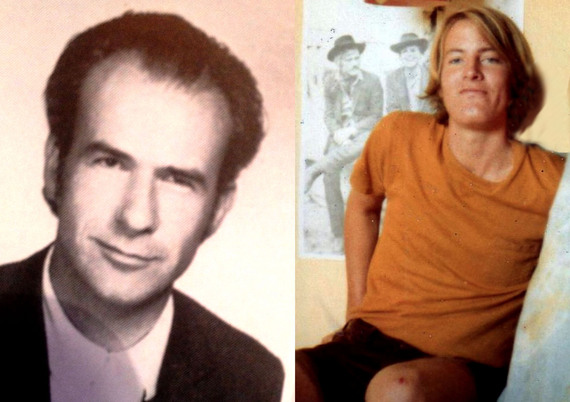I was recently preparing a talk for public school teachers about nurturing creativity in the classroom, so I mentally revisited those years of my life searching for reasons why, as an art kid, I have done so well in my career, even through I only have a high school degree: I reached the top of my field working for Newsweek and am now a university professor.
I was a pretty horrid student in most of my classes, particularly science, math and English. I just couldn't pay attention, the topics felt irrelevant and most tests I took were disastrous. Teachers pretty much bored and frustrated me, particularly my art teacher, who was gestapo-like about following rules. I almost didn't graduate and no college would have me, nor did my dad want to "waste money on that bum" for college. I always thought I was smart, but no adults did.
Except for Mr. Wilfred Lee, my high school government teacher. He was the first and last teacher, whom I can recall, who realized that there were different kinds of learners in his classroom with different intelligences and strengths, and he believed that not everyone should be evaluated using the same methodology. He knew I loved to draw, and I remember in particular one "exam" he gave about World War 1. He told us all that we had four options for taking it: 1) write an essay, 2) write a play, 3) give a presentation or 4) draw a political cartoon. Cartoon? I'm sure mine was horrid and sophomoric, but I worked on it for hours re-reading the chapters, thinking of all sorts of ideas, drawing layouts and stressing out over whether any got to the core of the issue. I worked hard and I got a "B," but I earned a lot more. I felt valued. Mr. Lee had "seen" who I was and had embraced my potential. He suggested I draw political cartoons for the high school paper, which I did. And I believe it made all the difference. My cartoons and drawings went on to be published in the New York Times and other major publications. Science is my friend now, and I love to write.
[I looked Mr. Lee up on the web so that I could write him and thank him, but he died just a few months ago. I'm sure he knew, though, that he had made a huge difference in many young lives.]
According to Howard Gardner, a developmental psychologist at Harvard University, each of us possesses a unique blend of eight intelligences (things we're predisposed to be good at) and some are more dominant in us than others. Gardner's research "documents the extent to which students possess different kinds of minds and therefore learn, remember, perform, and understand in different ways." This may seem obvious to everyone, but standard teaching and assessment methods treat all students as though they were clones of each other, a system that is lopsided and can put many capable students at a great disadvantage.
Students, all of them, are expected to excel at math and science, or they simply don't graduate. Imagine the results if all students were expected to paint a realistic self-portrait or run the mile in under four minutes in order to graduate. Silly, right? Not to students who do not have math and science as a dominant intelligence and whose abilities are undervalued, the ones the system brands as failures when they test poorly at something they were never programmed to do well at in the first place. Our school system cripples a great many students by destroying their creative and personal confidence and strangling their potential.
Instead of focusing on the high performing, front-row kids and neglecting the lost, skid-row kids in the back of the room, teachers can turn their classrooms into fertile ground that nurtures all students.
Here are some ideas that might help:
•Create a safe environment where all ideas are celebrated and "different" thinkers are embraced.
•Make sure students evaluate ideas instead of judging them.
•Look for opportunities for play and fun and get students moving.
•Don't just lecture and show slides. Involve your students, have them collaborate, and let them discover for themselves.
•Offer alternative ways for assessing the various kinds of thinkers in your classes.
•Bring the real world into the classroom. Have experiential projects to drive home the relevance of the material.
•Employ creative brainstorming techniques in group projects so that everyone's voice is heard.
•Value questions, not answers.
•Get students listening to understand, not to respond.
•View problems from different perspectives and ask open-ended questions. "How can we...?"
•Give second chances. Failure is a step toward success.
•Find new ways to reward kids beyond the grades.
•And finally, care about your students equally, and make sure they know that you care. As Benjamin Franklin once said, "Want of care does us more damage than want of knowledge."
The system will be slow to change, and I hope that one day it will, but a single teacher can make a difference right now.
